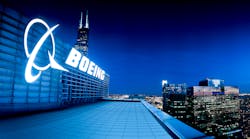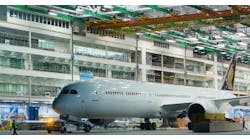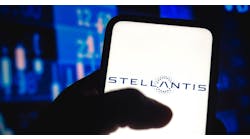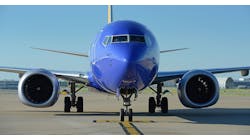Boeing Co. issued its first “Sustainability Report,” documenting a range of environmental, social, and governance (ESG) accomplishments during the past year, in line with global sustainability standards; describing its corporate “vision for the future of sustainable aerospace”; and establishing its sustainability goals.
The ESG objectives at Boeing are representative of a wider movement in corporate governance to apply metrics that will demonstrate the value of various intangible assets and may be documented as a corporate social credit score.
Boeing formed a Sustainability organization in 2020 to advance ESG efforts with respect to four pillars: people, products and services, operations and communities.
"We know there's still work to do and are committed to communicating our progress and holding ourselves accountable to ensure the aerospace industry is safe and sustainable for generations to come," according to chief sustainability officer Chris Raymond.
Boeing’s 2020 highlights included:
- Establishing six new sustainability goals line with “our key sustainability priorities and stakeholder interests”;
- Defining the company's vision for the future of sustainable aerospace through fleet renewal, network operational efficiency, renewable energy, and advanced technology; and,
- Committing to deliver commercial airplanes capable of flying on 100% sustainable fuels by 2030.
Boeing also listed its progress on the 2020 ecoDemonstrator program, in partnership with Etihad Airways, which tested sustainable technologies on a 787-10 Dreamliner aircraft. It also took credit for implementing digital engineering tools on the T-7A Red Hawk, achieving a 75% increase in first-time engineering quality and an 80% reduction in assembly hours. And it claimed progress in its all-electric autonomous air taxi project – Cora – being developed via a joint venture called Wisk.
In addition, Boeing has set corporate environmental performance goals by 2030, to reduce emissions, waste, water use, and energy consumption; and aims to achieve net-zero carbon emissions at Boeing work sites while reducing energy consumption by 12%, water use by 23%, solid waste by 44%, and hazardous waste by 34%.






